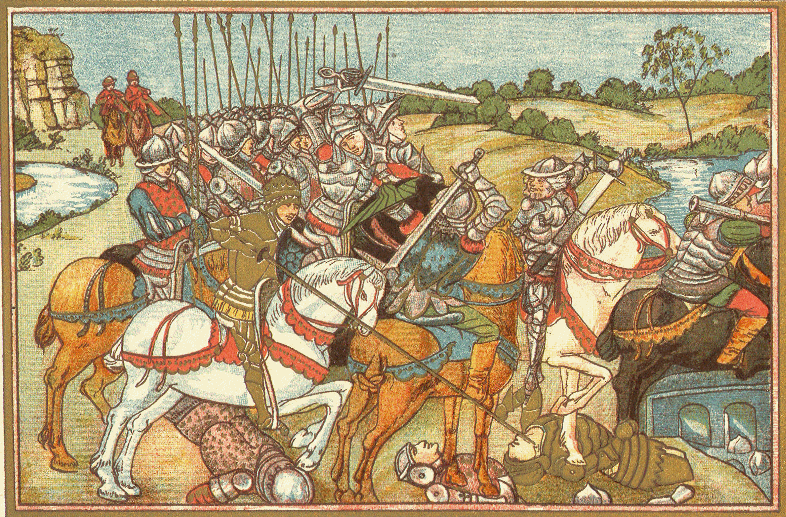The Battle of Hedgeley Moor, fought in Northumberland on 25
April 1464, checked the growth of Lancastrian insurgency in the far
north and allowed the continuation of peace talks between SCOTLAND,
a former Lancastrian refuge, and the Yorkist government of EDWARD
IV.
Early in 1464, Henry BEAUFORT, the Lancastrian duke of Somerset,
whom Edward IV had pardoned in the previous year, left his post in
WALES and fled into the Lancastrian north, where he declared openly
for HENRY VI. After a failed attempt to seize the Yorkist supply
base at Newcastle, Somerset appeared at the Northumbrian castle of
BAMBURGH, then in Lancastrian hands. Joining forces with Sir Ralph
Percy and other recently pardoned Lancastrians, Somerset launched a
two-month campaign that by late March had turned northeastern
England into a Lancastrian enclave. With Norham Castle and the
towns of Bywell, Hexham, Langley, and Prudhoe all in Somerset’s
hands, the Anglo-Scottish talks that were set to resume in
Newcastle on 6 March had to be rescheduled for late April in York.
To safely escort the Scottish commissioners from the border to
York, Edward IV dispatched John NEVILLE, Lord Montagu, into
Northumbria.
Collecting strength as he moved north, Montagu evaded a
Lancastrian ambush and came safely to Newcastle. Resuming his march
to the Scottish border, Montagu encountered a force under Somerset
about nine miles northwest of ALNWICK on Hedgeley Moor. Although
accounts of the battle are sketchy, fighting seems to have begun
with the usual exchange of ARCHER fire. But before the two armies
could engage, the left wing of Somerset’s force suddenly broke and
ran, perhaps because of poor morale. Montagu shifted his position
to attack the remaining Lancastrians, who were quickly overwhelmed
by the larger Yorkist army. At some point during the fighting,
Somerset and most of the Lancastrian army disengaged and scattered,
leaving Sir Ralph Percy and his household RETAINERS on the field to
be slaughtered. After the battle, Montagu reformed his army and
continued his march to the border, where he met the Scottish envoys
and conducted them safely to York to resume their talks with Edward
IV’s commissioners.
Further Reading: Haigh, Philip A., The Military
Campaigns of the Wars of the Roses (Stroud, Gloucestershire, UK:
Sutton Publishing, 1995).


Warfare is a fascinating subject. Despite the dubious morality of using violence to achieve personal or political aims. It remains that conflict has been used to do just that throughout recorded history.
ReplyDeleteYour article is very well done, a good read.